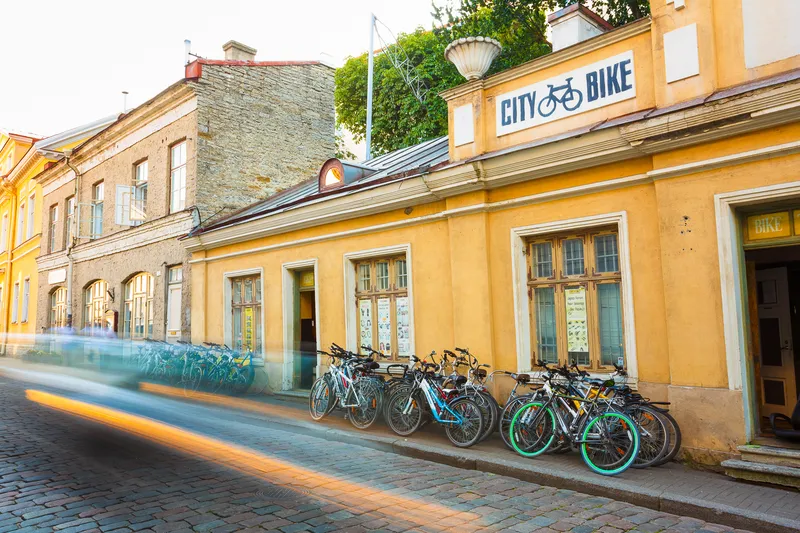
Tallinn, capital of Estonia, is inviting 500 cyclists to take part in an international mobility survey to map their journeys between June and September.
The data from the European project Bicification - increasing bicycle use in urban traffic will be used to develop a platform that analyses cyclists’ mobility patterns in a bid to make the city bike-friendly. You can register here.
The project is funded by the European Institute of Innovation and Technology (EIT)'s programme EIT for Urban Mobility, which aims to accelerate positive changes in mobility to make urban areas more liveable.
It aims to involve 1,500 users from three cities (Tallinn, Istanbul in Turkey and Braga in Portugal) for four months.
Over the next five years, the plan is to involve 100,000 people from 90 cities across Europe.
For its part, Tallinn plans 40km of new cycle paths in the city centre as well as upgrades to existing infrastructure.
"Our aim is to gradually implement the Tallinn Cycling Strategy and promote cycling as an everyday means of transport," said deputy mayor Vladimir Svet.
"It is important that such development projects involve people who actually use the city’s bicycle paths on a daily basis. This way, we can find out whether the planned routes are convenient and safe, and whether they are actually on the trajectories that cyclists use."
The Bicification survey starts on 1 June and ends on 30 September. Participants need to be 18 or over at the time of registration and to use a smartphone. They will attach a Pin Bike kit to their bicycle, which will be used to map movements (electric bikes are not allowed).
The research partner of Tallinn in the Bicification project is Tallinn University of Technology.
Anu Masso, associate professor of Big Data in social sciences at TalTech, explains: "Through a playful approach and 'nudging', Bicification allows to encourage people to cycle and to share information with planners about obstacles that cyclists may encounter, such as high curbs, as well as to inform them about opportunities, such as public drinking water taps."
"Internationally, this voluntary sharing of cyclists' personal mobility data has become a common and popular way for citizens to have a say in shaping urban infrastructure."
Each participant will be able to earn cycling mileage rewards of up to €1 per day and €30 per month, based on the number of kilometres cycled in the urban area indicated on a map of the city.
For every €10 collected, the app automatically generates a €10 voucher that can be used in various shops in Tallinn that participate in the project.








